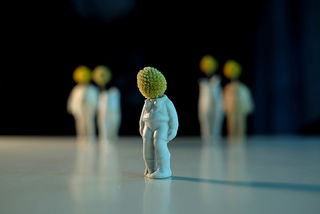
Identity
Never Home for the Holidays
The Unbearable Otherness of Being Biracial
Posted December 14, 2016

Think of the first time you visited the family of your partner or spouse for the holidays. Or a time you were invited to someone else’s family’s holiday party. Did you feel that everyone else had things in common but you? Imagine that feeling of otherness happening in every social situation. Being the other is a constant experience for biracial people. Even at their own family holiday gatherings, they may find that almost no one has much in common with them. They may never really feel at home for the holidays.
My paternal grandparents were from England and my maternal grandparents were from Japan. I didn’t know many other biracial people growing up because interracial marriages still were illegal in much of the United States. Unlike many other Japanese Americans, my mother discussed with me her experiences of being in an internment camp in Arizona during World War II. I learned that she and 120,000 other Japanese Americans were placed in internment camps because of their ancestry and not because they had committed crimes. Japan was the enemy and Japanese Americans looked Japanese.
Because of these discussions, I was closer to my mother than to my father. Research on biracial people indicates that they identify with the race of the parent that they are closer to. I identified as a Japanese American.
Self-identification is one thing. Acceptance by a group is another. Racially ambiguous biracial people are not immediately accepted into monoracial groups. In White groups, I was often asked, “What are you?” Research indicates that this is a very common experience among biracial people. This question was a crude reminder to me of my otherness. In Asian American groups, I was often asked, “What are you doing here?” A bit less crude than “What are you?”, but still a reminder of my otherness.
Younger biracial people may be a bit less offended by these blunt identity questions than I am. Perhaps this is because there are many more biracial people in the country now than when I was their age. Nevertheless, 69% of a group of biracial college students had negative reactions to being asked about their race.
Is there a tactful way of asking about racial identity? My biracial identity is important to me and I am happy to discuss it with people that I know. But I’m less happy to discuss it with people that I don’t know. If someone is genuinely interested in me and isn’t simply trying to categorize me as the “other”, here are recommendations for getting to know me:
- Instead of “What are you?”, begin with “How are you?”
- Instead of “What are you doing here?”, ask, “What do you do?”
These slight changes communicate inclusion rather than exclusion. And they are likely to get me to share about myself and my biracial identity. These questions also might make a holiday party much more enjoyable for a biracial person. And for you.
References
Stepney, C. T., Sanchez, D. T., & Handy, P. E. (2015). Perceptions of parents’ ethnic identities and the personal ethnic-identity and racial attitudes of biracial adults. Cultural Diversity and Ethnic Minority Psychology, 21, 65-75.
Tran, Alisia G. T. T. et al. (2016)."“What are you?” Multiracial individuals’ responses to racial identification inquiries." Cultural Diversity and Ethnic Minority Psychology, 22, 26-37.

